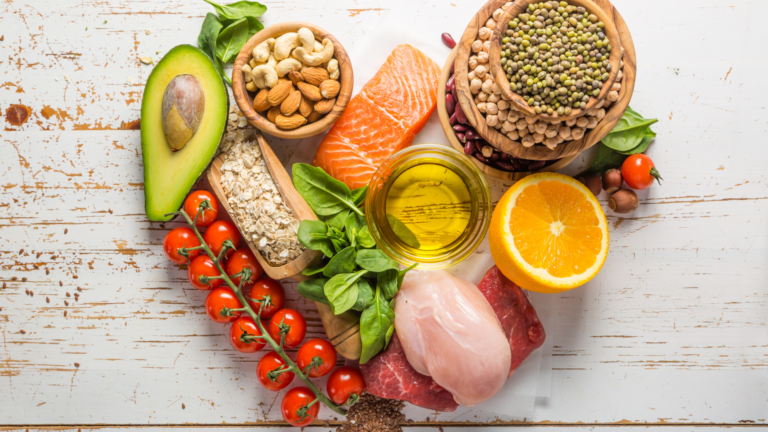Research shows that about 75% of people will get a significant and consistent improvement in symptoms like bloating, gas, abdominal pain and altered bowels following a low FODMAP diet. That’s about 3 in 4 people. But, what if you’re one of the 1 in 4 who doesn’t get results or you have had results, but they are inconsistent, leaving you in the frustrating position of getting symptoms from foods that are supposed to be low FODMAP.
Identifying culprit foods that are triggering your symptoms can be tricky, but a specialised IBS dietitian can help. FODMAPs are the most well-known and talked about foods that can trigger symptoms of Irritable Bowel Syndrome (IBS). However, they are not the only reason that IBS type symptoms can occur. This is when it helps to understand how FODMAPs behave and other factors that may be involved in your symptoms.
Here are the three most common reasons we see people getting symptoms from low FODMAP foods:
1. You’re always looking at the last food you ate
If you’re always looking at the last thing you ate, you might be quite confused by what is triggering your symptoms. FODMAPs usually take anywhere from 4 hours up to 24 hours to trigger IBS type symptoms. This means it’s most likely an earlier meal that contained the problematic food.
When we eat, food passes down the oesophagus and into the stomach. In the stomach it gets mixed with enzymes and broken down, before being slowly released into the small intestine. As food passes through the small intestine it is further broken down to single molecules, so that all the nutrients can be absorbed through the wall of the intestine and into the body. For one reason or another, FODMAPs do not get absorbed. This means they continue along the digestive tract to the large intestine or colon. In the colon, the last part of the digestive tract, two processes occur that are involved in triggering IBS type symptoms.
- As the FODMAPs attract water into the bowel, which may result in diarrhoea.
- When the FODMAPs arrive in the colon, they are fermented by the healthy bacteria that live there. This fermentation creates gas which stretches the walls of the intestine. If you have a sensitive gut this can result in bloating, wind and pain.
At any point in time, most people have about 24 hours’ worth of food at various points along their digestive tract. The human body is very smart, and when we eat messages are sent to the bowel telling it there is more food coming, and it needs to move things along to make room. If a FODMAP that was contained in an earlier meal, is then pushed into the large intestine, it potentially could cause IBS type symptoms soon after eating. In this case, it is a food eaten earlier in the day or the day before that is problematic, not the food that was just eaten.
2. Stressful situations
The gut brain axis is a very important part of IBS. This is a biochemical signalling system between the digestive tract and the central nervous system. These nerves also link to the emotional and cognitive centres of the brain, which is why stress, thought, emotion and psychological problems can affect gut sensation, triggering or worsening IBS symptoms.
It’s normal for people to feel butterflies in their stomach when they are nervous or anxious, in people with IBS, this is exacerbated and can actually trigger IBS symptoms, even when there are no FODMAPs present.
3. You are reacting to a different food molecule
FODMAPs are not the only type of food molecules that can trigger IBS type symptoms. If you are reacting to low FODMAP foods or have unexplained symptoms, it may be worth troubleshooting with an IBS specialist dietitian to determine what is going on.
Some of the more common non-FODMAP triggers for gut symptoms are:
- Gut irritants like caffeine, carbonated drinks or alcohol
- Fatty or spicy foods
- Foods that are very high in fibre
- Natural food chemical intolerances like salicylates, amines and glutamates
- Side effects of medications or supplements
Final Thoughts
If you’re reactions to low FODMAP foods are a one off, mark it down and keep going forward. If this is happening more often, it may be time to call in professional help from an IBS dietitian to troubleshoot what is going on.
Everyday Nutrition dietitians are IBS experts. All our dietitians are Monash FODMAP trained and experienced in other types of food intolerances as well. We have the knowledge and skills to help you troubleshoot your gut, resolve digestive issues and make peace with. Book an appointment here and take back control of your gut today.








2 Comments
Thanku for all of this great information, very appreciated and useful.
I have suffered constipation since a baby, born premature and bottle feed. I am now 70.
Low fodmap diet helps but things don’t get easier with age. I need to retest some food groups. I know stress plays a big role. Don’t eat gluten.
Once again many thanks
Kathryn?